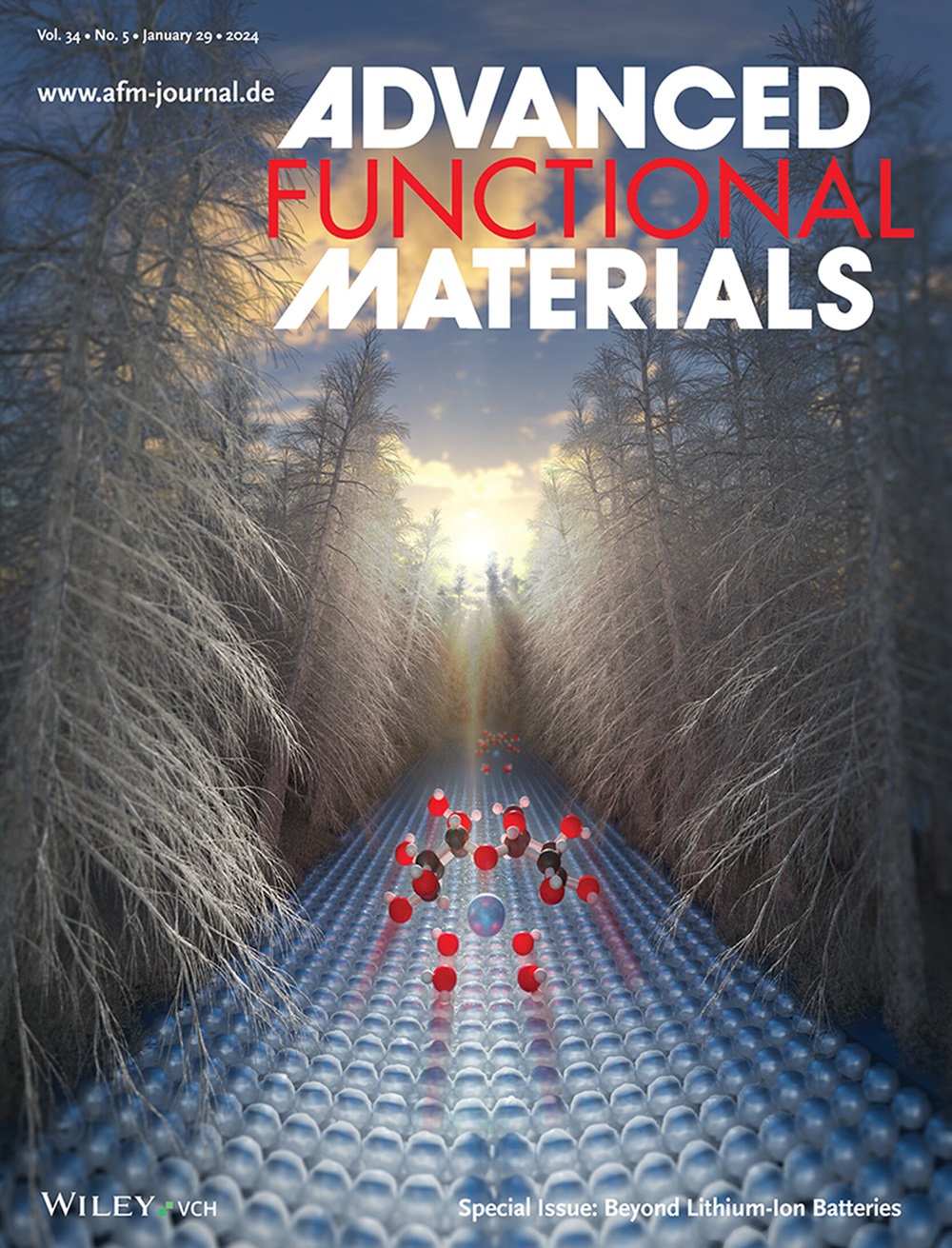用于根除耐药大肿瘤的可降解纳米胶囊
IF 18.5
1区 材料科学
Q1 CHEMISTRY, MULTIDISCIPLINARY
引用次数: 0
摘要
纳米药物在癌症治疗中的两个主要障碍是肿瘤的穿透性和耐药性有限,特别是对于那些大肿瘤,严重阻碍了其治疗效果的临床转化。本文报道了一种电荷可转换的可降解二氧化硅纳米胶囊,共包装了阿霉素(DOX)和p -糖蛋白siRNA (siPgp) (DOX-siPgp@Cap),这种纳米胶囊可以穿透整个肿瘤并抑制Pgp蛋白的表达,可有效治疗大肿瘤的耐药癌症。当感应到肿瘤酸性时,DOX-siPgp@Cap - 0发生负电荷到正电荷的反转,触发阳离子化介导的胞吞作用,将DOX和siPgp有效地共同递送到肿瘤深部,实现高细胞摄取效率和肿瘤深部穿透。DOX-siPgp@Cap - 0在酸性溶酶体中可降解,导致sigp和DOX持续释放,并随后从溶酶体中逃逸。可见,DOX-siPgp@Cap - 0具有较强的肿瘤深层穿透能力,同时抑制Pgp在肿瘤组织中的表达,从而显著降低DOX的耐药性。体内研究表明DOX-siPgp@Cap - 0在耐药三阴性乳腺癌小鼠模型中具有卓越的治疗效果,可根除临床大肿瘤(≈500 mm3),显著延长生存期。该研究为纳米药物在耐药癌症治疗中的治疗效益最大化提供了一个有希望的解决方案。本文章由计算机程序翻译,如有差异,请以英文原文为准。

Charge-Convertible Degradable Nanocapsules for Eradication of Drug-Resistant Large Tumors
Two major obstacles of nanomedicines in cancer therapy are the limited tumor penetrability and drug-resistance, especially for those large tumors, severely hampering their therapeutic efficacy for clinical translation. Here, a charge-convertible degradable silica nanocapsule co-packaging doxorubicin (DOX) and P-glycoprotein siRNA (siPgp) (DOX-siPgp@Cap⊖) that can penetrate throughout the entire tumors and suppress Pgp protein expression for effective drug-resistant cancer therapy of large tumors is reported. When sensing the tumor acidity, the DOX-siPgp@Cap⊖ undergoes negative-to-positive charge-reversal and triggers cationization-mediated transcytosis for efficient co-delivery of DOX and siPgp into the deep tumor sites, achieving high cellular uptake efficiency and deep tumor penetration. The DOX-siPgp@Cap⊖ is degradable in acidic lysosomes, leading to sustainable releases of siPgp and DOX and their subsequent escape from lysosomes. Evidently, the DOX-siPgp@Cap⊖ displays the superior deep tumor penetration capability, and concomitantly suppresses Pgp expression in tumor tissues, thereby significantly reducing DOX resistance. In vivo studies demonstrate the exceptional therapeutic efficacy of the DOX-siPgp@Cap⊖ in drug-resistant triple-negative breast cancer mouse models that leads to the eradication of clinically large tumors (≈500 mm3) with significantly extended survival. This study provides a promising solution for maximizing the therapeutic benefits of nanomedicines in drug-resistant cancer therapy.
求助全文
通过发布文献求助,成功后即可免费获取论文全文。
去求助
来源期刊

Advanced Functional Materials
工程技术-材料科学:综合
CiteScore
29.50
自引率
4.20%
发文量
2086
审稿时长
2.1 months
期刊介绍:
Firmly established as a top-tier materials science journal, Advanced Functional Materials reports breakthrough research in all aspects of materials science, including nanotechnology, chemistry, physics, and biology every week.
Advanced Functional Materials is known for its rapid and fair peer review, quality content, and high impact, making it the first choice of the international materials science community.
 求助内容:
求助内容: 应助结果提醒方式:
应助结果提醒方式:


